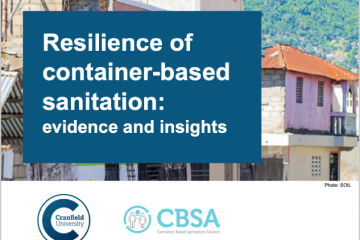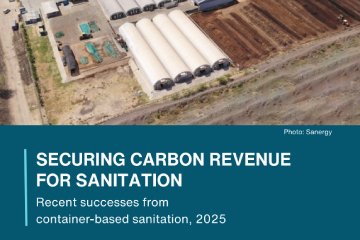Recent studies from around the world provide further evidence that container-based sanitation (CBS) improves people’s daily lives, with users reporting feeling more dignity, comfort, safety, and peace of mind.
These findings come from research in Kenya, Peru, South Africa, and Haiti, where CBS services were studied using the Sanitation Quality of Life (SanQoL) index. This tool looks at how toilets affect people’s experiences of privacy, safety, health, shame, and disgust. Building on earlier findings from Ghana, this new research confirms that CBS services can bring meaningful improvements.
High-quality servicing key to customer satisfaction in Kenya, Peru, and South Africa
One of the latest studies from the UKRI-GCRF Scaling Offgrid Sanitation project, compared CBS with other types of toilets in three countries. The difference was striking: CBS users had far fewer problems, while people using other toilets reported issues at a rate one-third higher.
For CBS users, the main complaint was bad smells, usually caused by too little dry cover material or the occasional maintenance delay – highlighting how closely service quality is tied to the user experience.
Still, most people were very positive about CBS. In Kenya, users particularly valued the regular container swaps. In Peru, they appreciated the clean replacement containers. Across all three countries, people’s SanQoL scores dropped whenever servicing slipped.
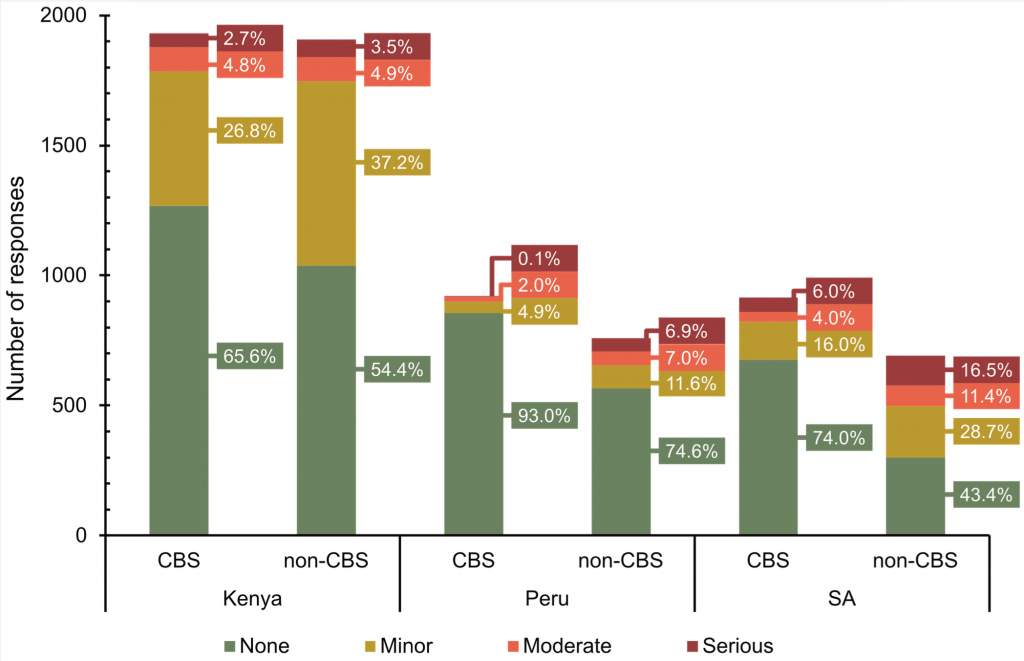
Dignity and comfort stands out for subscribers in Haiti and Ghana
In Cap-Haïtien, Haiti, research on the EkoLakay CBS service showed major improvements in how people felt about their toilets. On a 15-point SanQoL scale, users’ scores jumped by almost 8 points after joining the service. The biggest changes were in feelings of shame and disgust – strong indicators of the dignity and comfort CBS can bring.
The improvements were greatest for households that had been practising open defecation. For them, CBS made a significant difference in daily life.
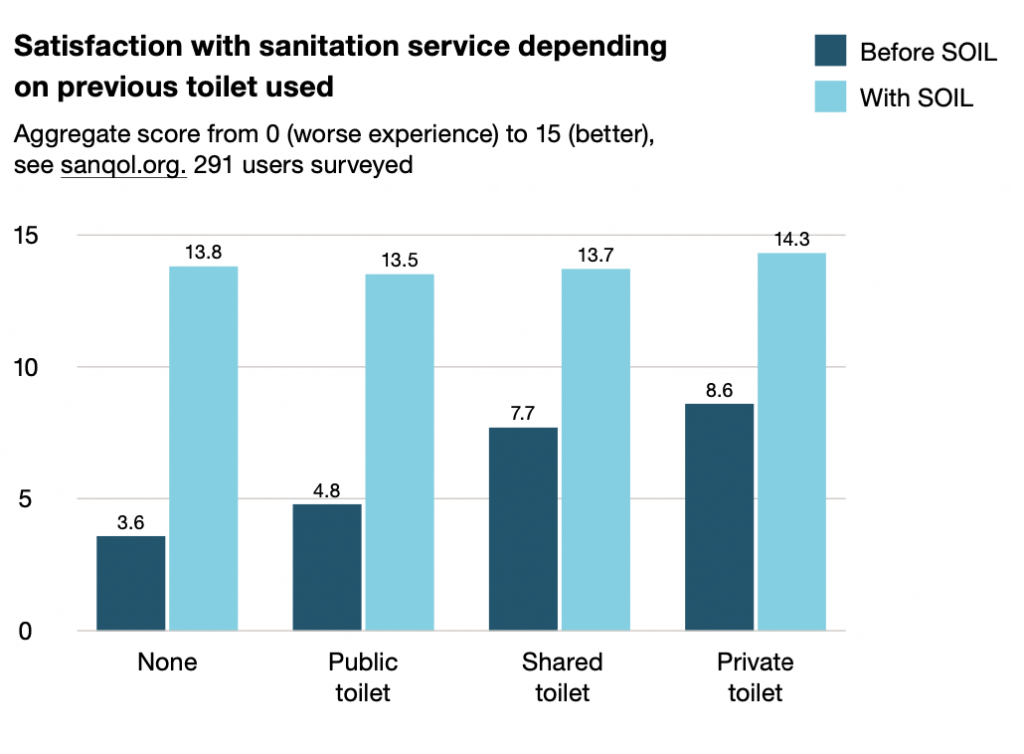
This echoes similar findings from Kumasi, Ghana in 2022, where Clean Team CBS users reported statistically significant increases across all five SanQoL attributes (see Figure 3). Reducing shame stood out once again, and other benefits highlighted included narrowing gender gaps in satisfaction and better support for people with disabilities. Almost all women (97%) said menstrual hygiene was easier to manage with CBS, compared with only 23% before.
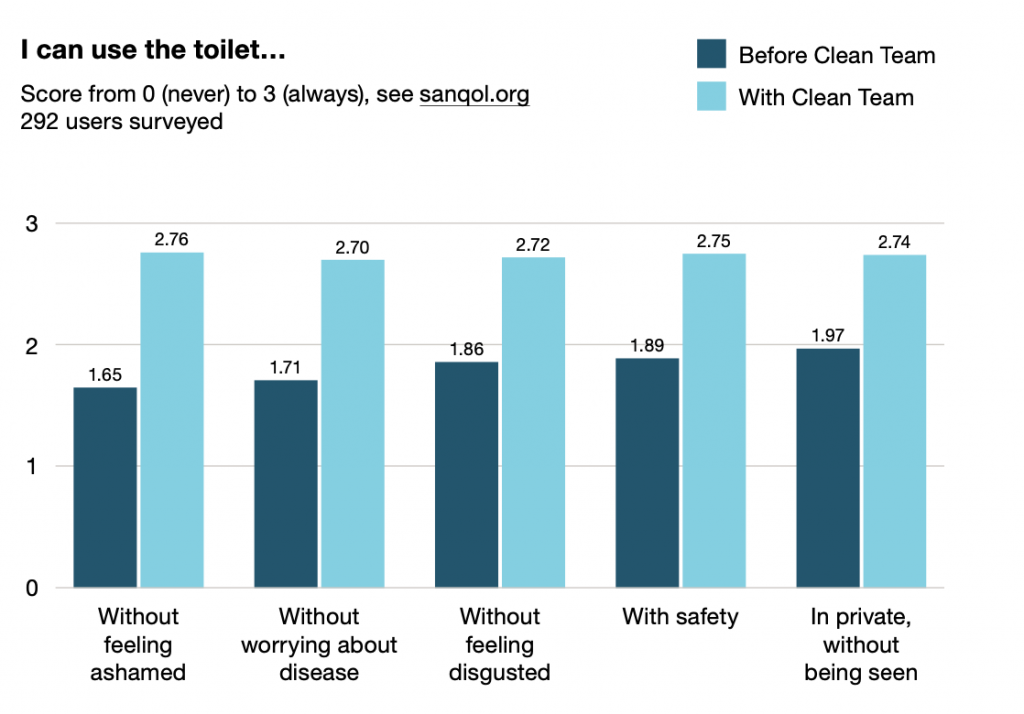
Valued by users, recognised globally
The consistent high satisfaction with servicing, coupled with substantial improvements in sanitation-related quality of life, demonstrates that CBS is a service that enhances dignity, safety, and well-being. This adds valuable user-driven validation that reinforces the approach’s global recognition as safely managed by the Joint Monitoring Programme (JMP).
As we strive for city-wide inclusive sanitation, supporting and scaling high-quality CBS implementation alongside other options is essential to ensure that every individual has access to the fundamental human right of safe and dignified sanitation.
Read more in a press release on Bangor University’s website, New study highlights benefits of container-based sanitation in informal settlements
